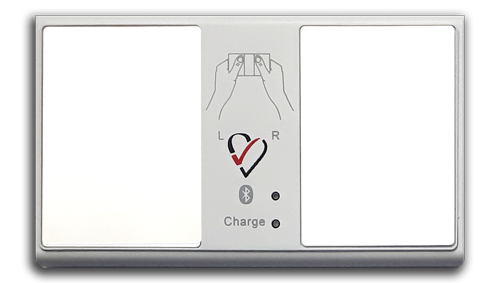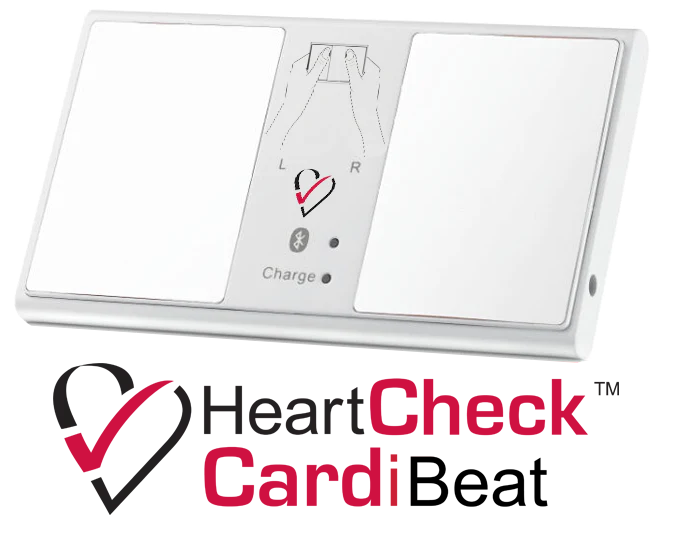Learn More About Electrocardiograms (EKG/ECG):
Abnormal ECG
Atrial Fibrillation
Atrial fibrillation, also known as AFib, is an irregular and often rapid heart rhythm that can lead to various health problems.
Heath Risk: AFib can be classified into different categories based on its duration and severity.
In this comprehensive guide, we will explore the key aspects of this condition, from its definition to its diagnosis and treatment. Understanding AFib is crucial for both patients and their caregivers, as early detection and proper management can significantly improve the quality of life and prevent serious complications.
What is Atrial Fibrillation?
Atrial fibrillation is an irregular and often rapid heart rhythm that can lead to various health problems. Normally, the heart’s electrical system sends signals to the heart muscles, allowing them to contract in a coordinated manner, pumping blood effectively. However, in AFib, the electrical signals become chaotic, causing the atria (the upper chambers of the heart) to quiver instead of contracting properly. This irregular rhythm can lead to blood clots, stroke, heart failure, and other complications.
This website offers general ECG information for educational purposes only. We are not licensed medical professionals. Content should not be construed as a substitute for professional medical advice, diagnosis, or treatment. For personalized guidance, consult a qualified healthcare provider.
Symptoms of Atrial Fibrillation
AFib can present with a range of symptoms, and they can vary from person to person. Common symptoms include:
-
Palpitations: A fluttering or rapid heartbeat.
-
Fatigue: Feeling tired and low on energy.
-
Shortness of Breath: Difficulty breathing, especially during physical activity.
-
Dizziness or Lightheadedness: Feeling faint or unsteady.
-
Chest Pain or Discomfort: Often mistaken for a heart attack.

Warning Signs of Atrial Fibrillation
It’s essential to recognize the warning signs and risk factors for AFib, which include:
Age
The risk of AFib increases with age, particularly after 60.
High Blood Pressure:
Hypertension is a significant risk factor.
Heart Disease:
Some medications, particularly those that affect the heart, can lead to palpitations.
Diabetes:
Uncontrolled diabetes can increase the risk.
Lifestyle Factors:
Smoking, excessive alcohol consumption, and obesity.
Management of Atrial Fibrillation
The management of heart flutter depends on the underlying cause and the severity of symptoms. Here are some general approaches:
Lifestyle Changes:
Reducing stress, limiting caffeine intake, and staying hydrated can help alleviate palpitations.
Medications:
In some cases, anti-arrhythmic medications may be prescribed to control heart rhythm.
Cardioversion:
A procedure to restore normal heart rhythm through controlled electrical shocks.
Ablation:
A minimally invasive procedure to eliminate the source of abnormal electrical signals.
Managing Underlying Conditions:
Treating heart conditions, like A fib or ventricular tachycardia, is essential for reducing palpitations.
When to Seek Medical Assistance
If you experience any of the symptoms mentioned or fall into the high-risk categories, it’s essential to consult a doctor. Timely diagnosis and treatment can help manage AFib effectively and prevent complications like stroke or heart failure. Regular check-ups are crucial for those with known risk factors or pre-existing heart conditions.
Emergency Level / Seriousness
AFib can be classified into different categories based on its duration and severity. Paroxysmal AFib is sporadic and usually resolves on its own, while persistent AFib lasts for longer periods. The most severe form is permanent AFib, which requires long-term management. If you experience symptoms such as severe chest pain, difficulty breathing, fainting, or weakness on one side of the body, seek immediate medical attention, as these could be signs of a medical emergency.
How It Is Tested
Diagnosing AFib involves various tests, including:
Electrocardiogram (ECG or EKG):
A common test to monitor the heart’s electrical activity.
Holter Monitor:
A portable ECG device for continuous monitoring over 24-48 hours.
Event Monitor:
Similar to the Holter monitor but worn for a more extended period.
Echocardiogram:
An ultrasound of the heart to assess its structure and function.

To monitor your heart health yourself from home you could purchase a mobile ECG unit such as the HeartCheck™ CardiBeat Mobile ECG Device.
How It Is Treated
AFib can be managed in several ways, depending on its type and severity:
Medications:
Anti-arrhythmic drugs and blood thinners can help control heart rate and prevent blood clots.
Cardioversion:
A procedure to restore normal heart rhythm through electrical shocks.
Catheter Ablation:
A minimally invasive procedure to destroy abnormal heart tissue.
Surgery:
In some cases, open-heart surgery may be required to treat AFib.
Atrial Fibrillation Conclusion
Atrial fibrillation is a serious cardiac condition that requires medical attention and lifestyle adjustments. Understanding the symptoms, warning signs, and treatment options is crucial to effectively manage this condition and prevent severe complications. If you suspect you have AFib or have risk factors, consult a healthcare professional promptly to discuss your options and ensure a healthier heart.

